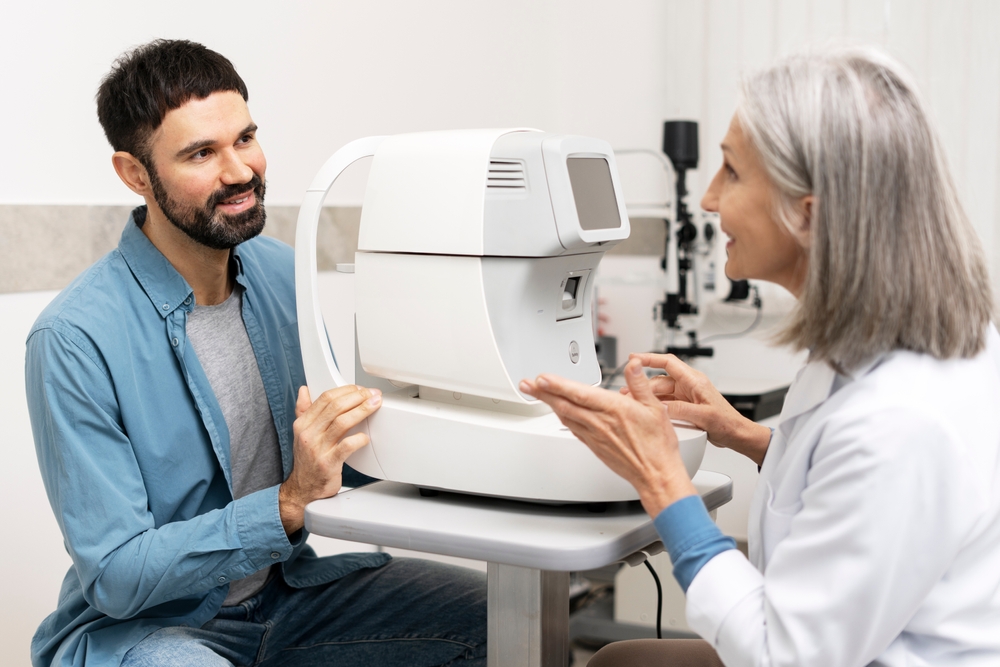
Life can get busy, and it’s easy to let routine checkups, like eye exams, fall by the wayside. However, your vision and eye health are essential to your overall well-being. If you haven’t been to the eye doctor in years, you’re not alone—but it’s never too late to schedule an appointment and take charge of your ocular health.
Understanding Comprehensive Eye Exams
A comprehensive eye exam is a detailed assessment of your vision and overall eye health. During the exam, your optometrist evaluates your visual acuity to determine if you need glasses or contact lenses, and examines the health of your retina and optic nerve. Additionally, they assess eye coordination, depth perception, and peripheral vision. Even if your vision seems fine, a comprehensive exam can reveal underlying issues that may not yet present noticeable symptoms.
What Is a Medical Eye Exam?
While comprehensive eye exams focus on both vision correction and overall eye health, a medical eye exam is more specialized. These exams diagnose and manage specific eye-related medical conditions, such as:
Diabetic retinopathy
Dry eye syndrome
Retinal diseases
Eye infections or injuries
If you’ve noticed symptoms like persistent dryness, sudden vision changes, or eye pain, a medical eye exam may be necessary.
Why Are Annual Eye Exams Important?
Regular eye exams, ideally scheduled annually, are essential for maintaining optimal eye health. These routine checkups play a crucial role in protecting your vision and identifying potential issues before they become serious.
One of the most important reasons for annual eye exams is the early detection of eye diseases. Conditions like glaucoma and macular degeneration often develop without noticeable symptoms in their early stages. Regular exams allow your optometrist to identify these issues early, ensuring that treatment can begin promptly and effectively to prevent further damage.
Additionally, annual exams help ensure your prescription is up to date. Vision changes over time, and an outdated prescription can lead to headaches, eye strain, or difficulty seeing clearly. Keeping your prescription current ensures you enjoy the sharpest vision possible.
Eye exams also provide valuable insights into your overall health. Your optometrist can detect signs of systemic conditions like diabetes, high blood pressure, and even some types of cancer through a thorough examination of your eyes. Regular checkups can play a key role in monitoring and safeguarding both your eye health and general well-being.
Who May Need More Frequent Eye Exams?
While annual eye exams are the standard recommendation, some people may benefit from more frequent visits to the optometrist, including:
Children: Developing eyes require close monitoring to ensure proper vision and prevent learning challenges.
Older Adults: Individuals aged 60 and older are at a higher risk for age-related eye conditions.
People with Chronic Health Conditions: Those with diabetes, hypertension, or autoimmune diseases may need regular monitoring for associated eye complications.
Those with a Family History of Eye Disease: If glaucoma, macular degeneration, or other conditions run in your family, more frequent exams may be necessary.
What Happens If It’s Been Years Since Your Last Exam?
If it’s been a while since your last visit, there’s no need to worry. Your optometrist will start by taking a detailed medical and ocular history to understand any changes in your vision or health. From there, they’ll perform a comprehensive exam and recommend a personalized care plan based on your current needs.
Schedule Your Eye Exam Today
Whether it’s been a few years or a few decades since your last eye exam, now is the perfect time to prioritize your eye health. We’re here to provide comprehensive and medical eye care tailored to your unique needs.
Don’t wait until a problem arises, schedule your eye exam with Eye Care Center of North Jersey and give your eyes the care they deserve. Visit our office in Scotch Plains, New Jersey, or call (908) 322-8040 to book an appointment today.


